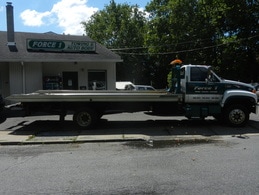Are you looking for a shipping solution? Maybe you need to change freight carriers? Find out what the hard working and reliable people at Team Worldwide can do over land, sea and air
NCDHHS Expands COVID-19 Data Dashboard; Includes Wastewater Monitoring to Detect Spread of COVID-19
RALEIGH — The North Carolina Department of Health and Human Services today expanded its NC COVID-19 Dashboard to include a new metric – wastewater monitoring. Since January 2021, NCDHHS has been testing wastewater samples to look for SARS-CoV-2, the virus that causes COVID-19, as part of the CDC’s National Wastewater Surveillance System. This new statewide program, known as the North Carolina Wastewater Monitoring Network, is a collaboration between 11 wastewater utilities, 8 local public health departments and researchers at the University of North Carolina.
People who are infected with COVID-19 shed viral particles in their feces. These viral particles are no longer infectious in wastewater but can be measured if enough people are infected. Currently, data are reported from 11 wastewater treatment facilities in North Carolina, but the program is expanding to additional sites.
"Wastewater monitoring is a new tool that will help us track the spread of COVID-19 in participating communities even as fewer people are being tested," said State Epidemiologist Dr. Zack Moore. "This can be an early warning system and allow health officials to take actions to stop the spread if trends are increasing."
Measuring the virus that causes COVID-19 in wastewater allows NCDHHS to track COVID-19 trends in an entire community served by the same sewer system with one sample. Wastewater monitoring detects virus shed by people who are symptomatic, as well as people who are asymptomatic. This can be important as asymptomatic people are rarely tested and the CDC estimates that 50% of COVID-19 transmission is caused by people without symptoms. Preliminary wastewater data have shown trends similar to what NCDHHS has seen from reporting of individual test results.
If wastewater data show an unexpected increase in COVID-19 in a community, NCDHHS will immediately notify the wastewater treatment plant and local health department. NCDHHS recommends that local communities review wastewater data along with other COVID-19 metrics. If warranted, local officials can take the following public health measures:
For COVID-19 data in North Carolina, visit covid19.ncdhhs.gov/dashboard.
People who are infected with COVID-19 shed viral particles in their feces. These viral particles are no longer infectious in wastewater but can be measured if enough people are infected. Currently, data are reported from 11 wastewater treatment facilities in North Carolina, but the program is expanding to additional sites.
"Wastewater monitoring is a new tool that will help us track the spread of COVID-19 in participating communities even as fewer people are being tested," said State Epidemiologist Dr. Zack Moore. "This can be an early warning system and allow health officials to take actions to stop the spread if trends are increasing."
Measuring the virus that causes COVID-19 in wastewater allows NCDHHS to track COVID-19 trends in an entire community served by the same sewer system with one sample. Wastewater monitoring detects virus shed by people who are symptomatic, as well as people who are asymptomatic. This can be important as asymptomatic people are rarely tested and the CDC estimates that 50% of COVID-19 transmission is caused by people without symptoms. Preliminary wastewater data have shown trends similar to what NCDHHS has seen from reporting of individual test results.
If wastewater data show an unexpected increase in COVID-19 in a community, NCDHHS will immediately notify the wastewater treatment plant and local health department. NCDHHS recommends that local communities review wastewater data along with other COVID-19 metrics. If warranted, local officials can take the following public health measures:
- Mobilize or increase pop-up testing.
- Increase public health communications on the importance of masking, handwashing, social distancing and avoiding large crowds in enclosed spaces.
- Alert local hospitals, clinics and other health care providers about a potential increase in cases.
- Provide recommendations to community leaders or implement restrictions like limiting indoor gatherings and reducing business capacity.
- Take steps to increase vaccination in the community.
For COVID-19 data in North Carolina, visit covid19.ncdhhs.gov/dashboard.
Ready for reliable and friendly service in a towing company? Combined with competitive rates? Call Force 1 Towing and Auto Body in Catasauqua at 610-266-6721


